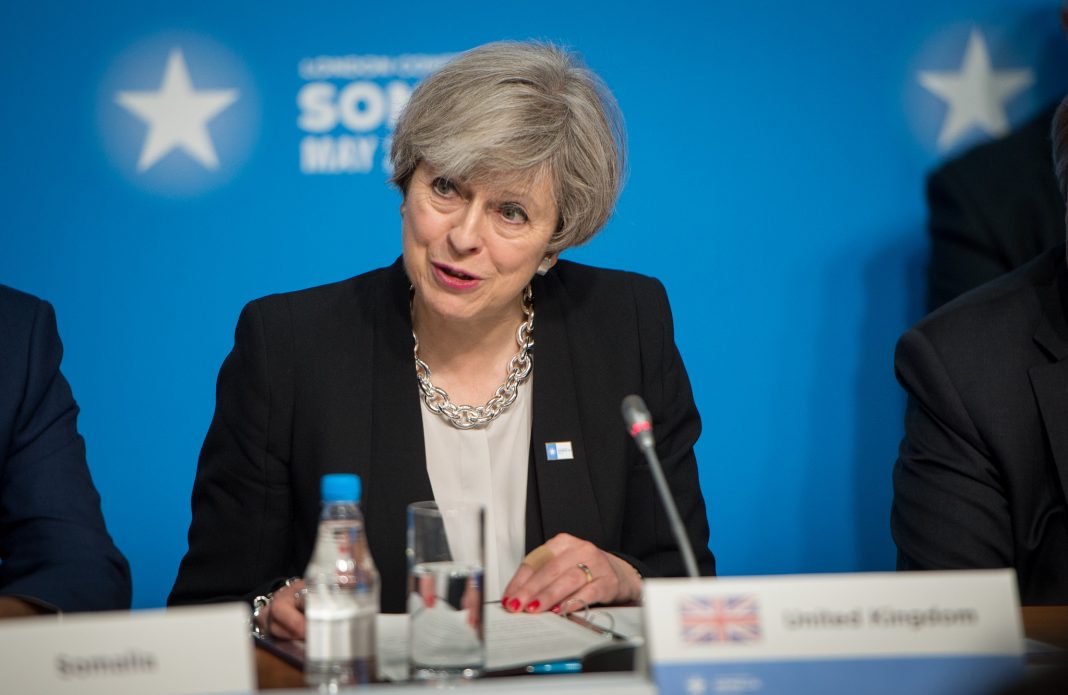An academic at Newcastle University has written an article investigating why the uttering of rude words has become so popular among our politicians.
Not only has our prime minister Theresa May been at it, but a number of senior Labour figures have also been turning the air blue.
As this article will need to give examples of the somewhat graphic language our political class has taken to using, readers of a more sensitive disposition should perhaps stop reading now.
Dr Damian Hall, a lecturer in linguistics at Newcastle University, said, “The 2017 British general election race has brought out quite a bit of unparliamentary language from people standing for election and the people supporting them.”
“But these are rarely slips of the tongue. In fact, British politicians use risqué language for quite specific reasons, particularly ahead of an election.”
According to Dr Hall, the tone was set by our prime minister, who said that Jean-Claude Juncker would find her “a bloody difficult woman” in the upcoming Brexit talks. Dr Hall points out that ‘bloody’ – though mild and widely used in British English – is still considered a swearword.
Theresa May was actually using a phrase the veteran Tory MP Ken Clarke had used to describe her. Ms May is therefore implying that the toughness that got her to the top of the Conservative Party could also be used against European leaders to good effect.
The ‘Britishness’ of the swearword, Dr Hall argues, has also been deliberately employed by Ms May to emphasise that she stands for British values and identity, particularly when faced with the tricky task of disengaging us from the EU.
Labour has also been using strong language to score political points. At a recent Manchester rally, the actress Julie Hesmondhalgh introduced Jeremy Corbyn as “a man who has dedicated his life to giving a toss about other people.”
Dr Hall points out that ‘toss’ can be a euphemism for masturbation. Perhaps, it could be argued, the phrase ‘give a toss’ has the more innocent meaning of tossing a coin, but in a Twitter poll Dr Hall carried out 63% of respondents thought the phrase referred to masturbation as opposed to just 37% who felt it was linked to coin tossing.
When someone says they ‘don’t give a toss’, what’s your first impression? Does it refer to masturbation or to coin-tossing? Please RT!
— Everyday Language (@EvrydayLg) May 10, 2017
Hesmondhalgh – known for playing the Coronation Street character of Hayley Cropper, who has struggled with some gritty situations on the soap – is probably the sort of person the public would think might swear if she felt it necessary.
Could she have used a rude word to imply that the Labour Party – and Corbyn in particular – understood the struggles of ordinary folk? Was she saying the party knew how gritty everyday life can be?
One of our sweariest politicians is shadow foreign secretary Emily Thornberry. Back in May, Ms Thornberry famously accused defence secretary Michael Fallon of “talking bollocks” on live TV. Thornberry also once mouthed the same word in the House of Commons when David Cameron was speaking.
‘Bollocks’ – originally meaning ‘testicles’, but now more commonly used to mean ‘nonsense’ or ‘rubbish’ – was ruled non-obscene by a UK court back in 1977.
But that’s not how the majority of the British public see it. A recent BBC survey showed that around half of the respondents considered ‘bollocks’ to be either ‘very’ or ‘quite severe’ swearing.
Dr Hall points out that many other countries, including the USA, wouldn’t tolerate such profanity from their politicians. In the recent French elections, the conservative Francois Fillon found his use of emmerder (Piss off!) generated plenty of disapproval.
So why are British politicians getting away with so much swearing? Dr Hall believes that “the people of the UK want their politicians to be grounded.”
“They want them to be like the average person – moved by the same things, affected by the same sorts of problems. And one way they can show that is if they swear (a little bit) like the rest of us.”
“But only a little bit because, in the end, Britons want them to be different enough to be able to solve the problems ordinary folks can’t.”
“That’s why politicians’ swearing is so carefully circumscribed,” Dr Hall adds. “The public doesn’t want to know that actually they’re just like everyone else, but does want to see that they’re just enough like everyone else to appreciate everyday problems.”
“The British people want to know that their politicians give a toss.”
(Featured image courtesy of Jim Mattis, from Flickr Creative Commons)




















